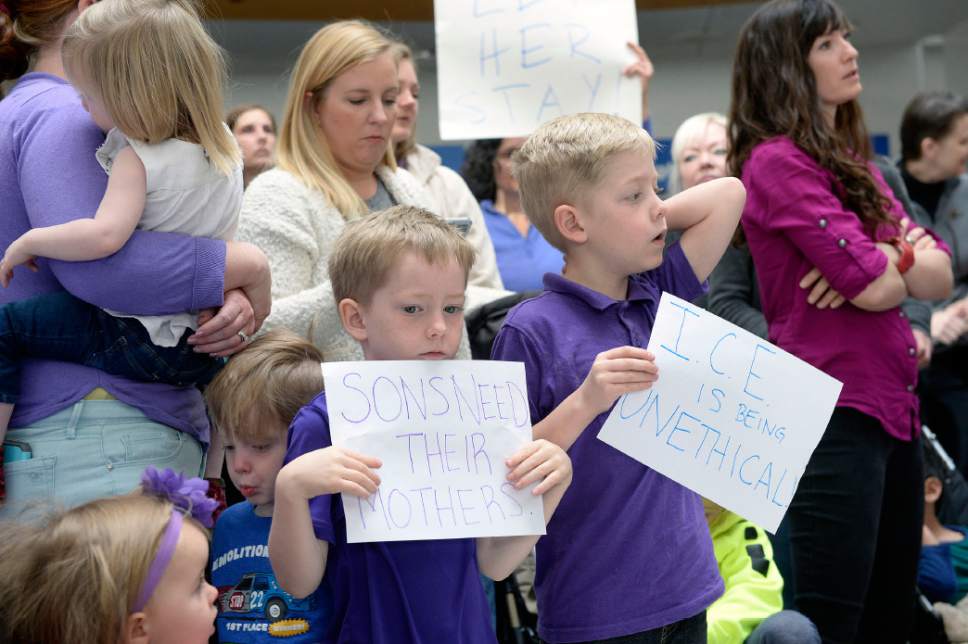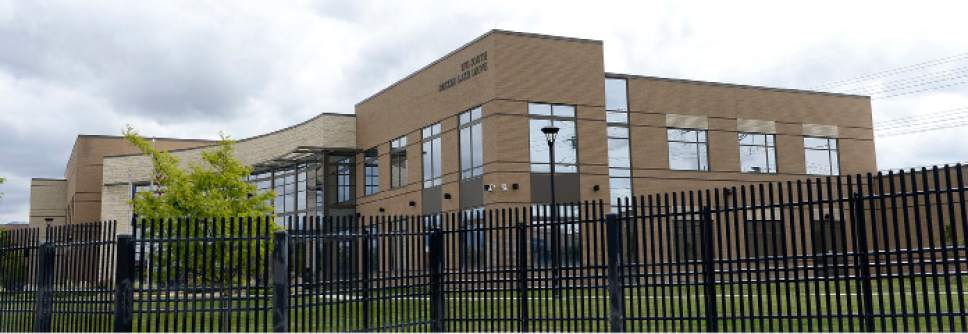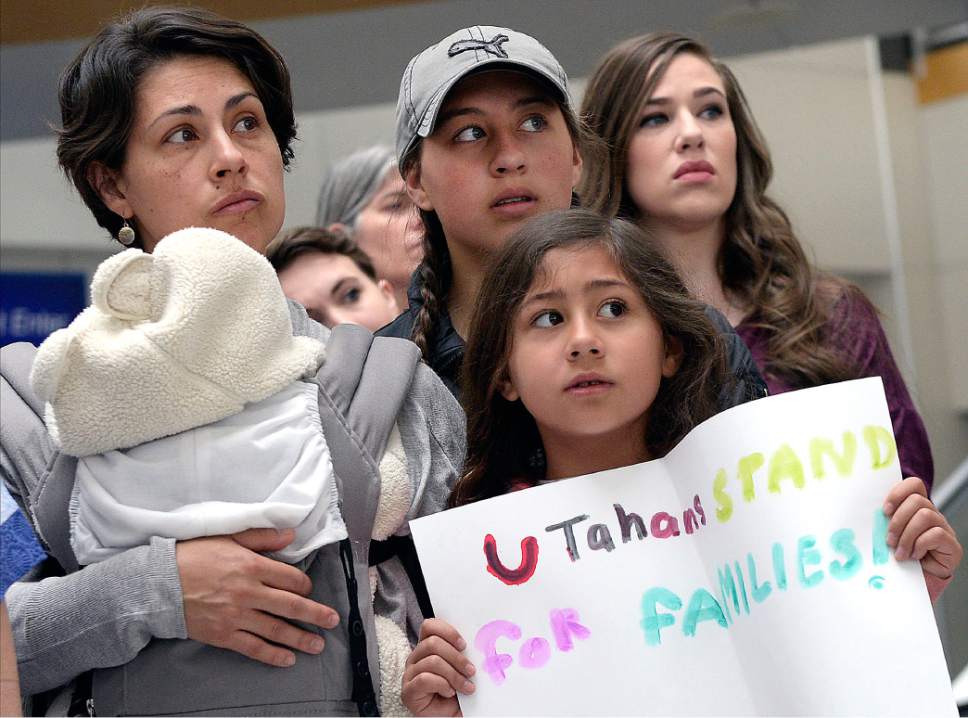This is an archived article that was published on sltrib.com in 2017, and information in the article may be outdated. It is provided only for personal research purposes and may not be reprinted.
Under President Donald Trump, undocumented immigrants without a criminal history are more likely to be arrested by Salt Lake City-based U.S. Immigration and Customs Enforcement (ICE) agents than they are in other areas.
Arrest rates for people suspected of "noncriminal" offenses, or immigration violations, more than tripled in the region — which includes Utah, Idaho, Nevada and Montana — in the 100 days following Trump's executive order changing immigration priorities this year, according to numbers released by ICE regional spokesman Carl Rusnok.
ICE agents detained 245 "noncriminal" immigrants from Jan. 20 to April 29, Rusnok said. During a similar time period in 2016, they arrested 75.
Nationally, the arrest rate for immigrants without any previous criminal convictions grew by 150 percent during the time period .
Most of the regional arrests would have come from Utah, Rusnok said, but data are reported by region, not by state.
Though the agency's main focus is to target convicted criminal offenders, the detention rate of that group has essentially remained stagnant in the region, decreasing by three people (1,317) when compared to numbers from a similar time period last year (1,320). Nationally, the rate increased by about 18 percent.
All immigrants included in the "criminal" category have been convicted of some type of crime, Rusnok said, whether it be misdemeanors or felonies. In Utah, some minor traffic violations are categorized as class C misdemeanors.
"Definitely a lot of community members are living in fear more than ever," said Mayra Cedano, a spokeswoman for Comunidades Unidas, a local Latino outreach group. "We're definitely concerned — very, very concerned — about all the people who have been arrested."
ICE's recent actions have caused "widespread panic" among immigrants and employers who rely on immigrant labor, said immigration and defense attorney Adam Crayt.
Fear also has an effect on immigrants' willingness to report crimes to local law enforcement officers, Crayt said, because they worry officers have ICE "in their back pocket."
But Ronald Mortensen, a co-founder of the Utah Coalition on Illegal Immigration, said enforcing the law as it's written is "a good thing."
"Removing these people is protecting Utah citizens," Mortensen said, noting some Utahns have had their Social Security numbers stolen by illegal immigrants trying to find work. He added that being in the country illegally is a crime, whether it happened by overstaying a visa or crossing the U.S. border without going through a checkpoint.
Frequent humanitarian trips overseas, especially to the Middle East, have shown Mortensen that "it's when the rule of law starts breaking down that you have all these terrible things happen."
People say that the situation is tough on families, Mortensen said, but he argues that any time a crime is committed, it's tough on families.
"If an American would commit identity theft, and we'd convict you and put you in jail, what does that do to your family?" he said.
The changes in enforcement have disrupted the lives that immigrants have spent years building, Crayt said. For example, he has clients who are cancer survivors or have other medical conditions who have been approved for a stay of deportation year after year. Now, he said, they're receiving notices in the mail, instructing them to get a ticket back to their country of origin and check in with immigration officers.
The majority don't have a criminal history, he said, and many are married to legal residents. "They literally are valued members of our community."
"With documents and without documents, everyone has rights," Cedano said. Comunidades Unidas has been holding "Know Your Rights" trainings in Salt Lake City to educate people and encourage them to exercise their rights.
Thomas Homan, acting director for ICE, said in a Wednesday news release that "all of those arrested will receive the due process afforded to them under the law."
"ICE will take action to remove individuals subject to a final order by a federal immigration judge," Homan said.
Under Trump's new orders, 930 regional immigrants were deported in the 2017 time period — 770 who'd been convicted of a crime and 160 categorized as noncriminals, ICE data show.
In the comparable 2016 time period, the Obama administration deported 512 people — 439 of whom were categorized as criminals and 73 of whom were considered noncriminals.
"We are a nation of laws," Homan said, "and ignoring orders issued by federal judges undermines our constitutional government."
Twitter: @mnoblenews









